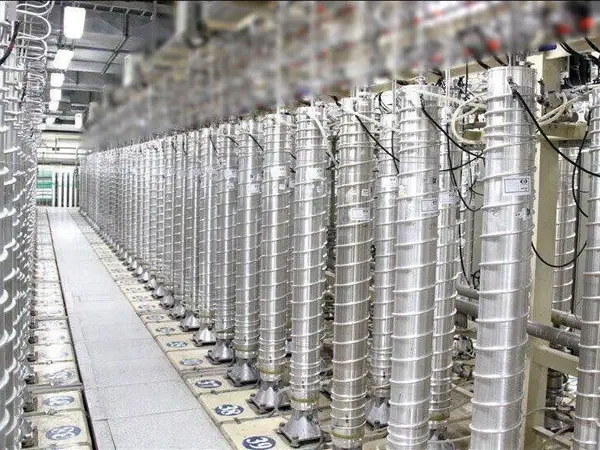The return of Iran’s negotiators after the European Union presented a “final text” Monday for reviving the Iran nuclear deal is sparking muted debate in Tehran.
State media was quick to point out Monday, as four days of EU-moderated negotiations between Iran and the United States ended in Vienna, that Iran did not regard a text presented by Enrique Mora, the talks coordinator, as a finished agreement on restoring the JCPOA (Joint Comprehensive Plan of Action).
Javad Karimi Ghodousi, a member of the parliament’s National Security and Foreign Policy Committee, told Javan newspaper that Iran’s position in negotiations had been strengthened by the recent preparation of additional centrifuges, used for enriching uranium, including relative advanced models barred under the JCPOA.
Ghodousi contrasted the “admirable” actions of the government of President Ebrahim Raisi, in office a year, with the previous administration of President Hassan Rouhani, under which “Iran’s nuclear centers were closed and the growth of nuclear science and technology in the country was stopped…”
Nour News, affiliated to the Supreme National Security Council (SNSC), said the aim of the Mora text was to “force Iran to accept proposals under pressure.” Nour suggested the EU as talks coordinator “lacked the authority to present proposals as a final text.”
The official news agency IRNA reported a Monday phone-call between Foreign Minister Hossein Amir-Abdollahian and Josep Borrell, the European Union foreign policy chief, in which Amir-Abdollahian said Iran expected all parties to talks to “show seriousness and resolve in order to achieve the final text of the agreement.” IRNA portrayed Borrell being willing to continue efforts to bring the viewpoints of all parties closer.
‘Behind every technical issue…’
As American and Iranian negotiators prepared to leave Vienna Monday, Borrell tweeted that “what can be negotiated has been negotiated.” He added that “behind every technical issue and every paragraph lies a political decision that needs to be taken in the capitals.”
A US State Department spokesman said Monday that Washington was waiting for Iran’s reaction: “They repeatedly say they are prepared for a return to mutual implementation of the JCPOA (the Joint Comprehensive Plan of Action). Let’s see if their actions match their words.”
IRNA reported Monday that the Iranian negotiators would convey Iran’s “opinions and observations” in due course on what it called “some ideas concerning some of the remaining issues.”
Mora’s text has not been made public, although there have been various reports as to where agreement may have been broadly reached, and where gaps remain between Iran and the US.
The four days in the Austrian capital, with European diplomats shuffling between the Iranians and Americans in different hotels, came after Borrell in late July circulated a text designed to bridge gaps over restoring the JCPOA.
‘Fuel in 500 centrifuges…’
Critics of the JCPOA in the US have argued Iran has dragged out negotiations– which ran April 2021-March 2022 with world powers in Vienna, followed by June’s bilateral US-Iran meeting in Qatar – as it expands its nuclear program. Tehran currently enriches uranium to 60 percent purity, far above the 3.67 percent JCPOA limit and close to the 90 precent deemed ‘weapons grade.’
Iran’s decision over the Mora text – to accept it, reject it, or seek further talks – apparently rests with the SNSC, in which Supreme Leader Ali Khamenei presides. Some politicians say Iran has the best deal available and urgently needs US sanctions eased, while Ghodousi’s argument that “putting fuel in 500 centrifuges strengthened Iran’s position” could be an argument for holding out or declaring ‘victory.’
Oil prices dropped $1 a barrel Tuesday, apparently reflecting some highly guarded market optimism of JCPOA restoration, which traders anticipate would bring around 1m barrels extra of Iranian oil exports. But oil prices have been declining since early July as prospects of lower economic growth could lower demand.
